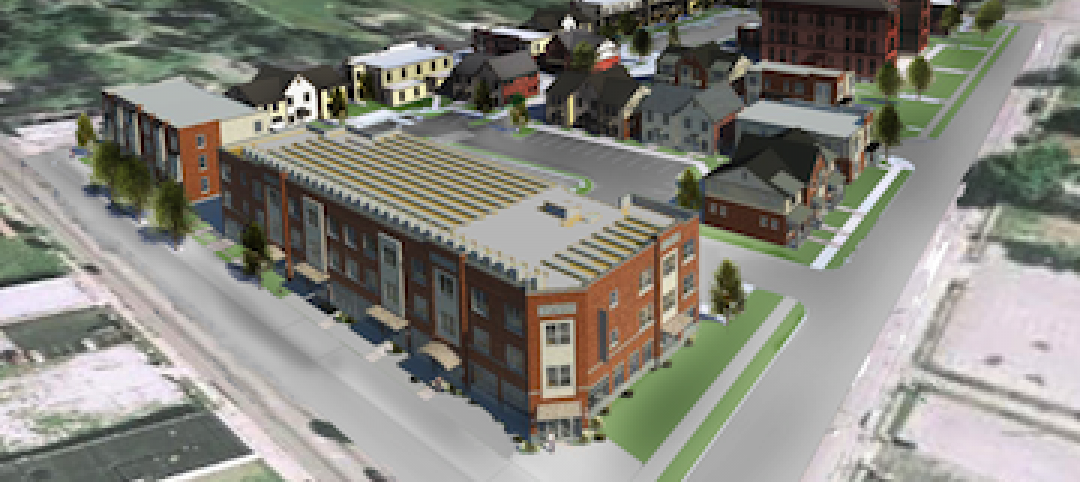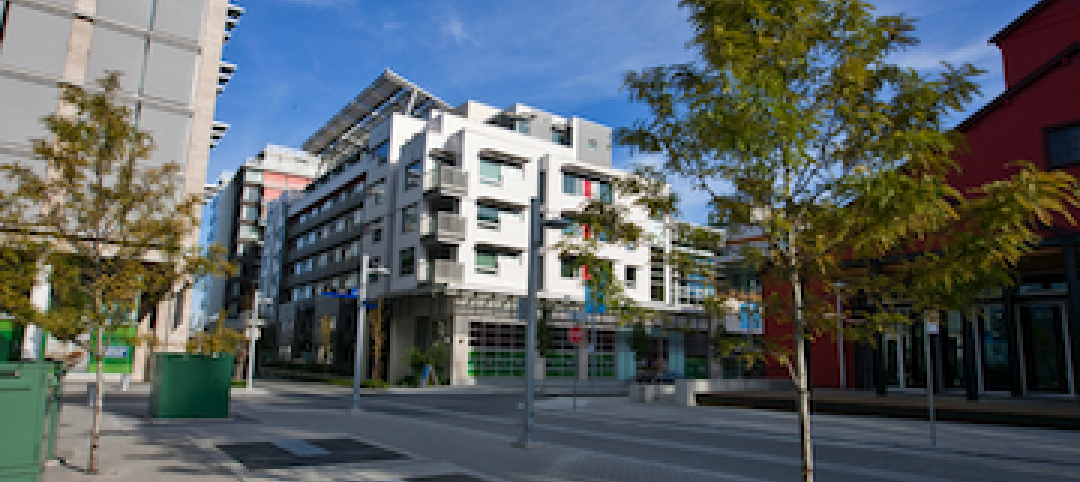CoreNet Global, a major international association for corporate real estate and workplace executives, has released a public policy statement advocating adoption of net-zero energy buildings: "We support the principle that smart and responsible energy policies and practices reduce corporate carbon footprints and greenhouse gas emissions, and we encourage our members' companies to drive energy efficiency to optimal levels with net-zero buildings as a top measure of long-term success."
The same statement calls on federal governments around the world to incentivize building owners, investors, and occupants who proactively reduce their carbon footprints through the use of green energy development and retrofits.
"Office, industrial, retail and other types of commercial real estate account for 40% of the world's annual energy consumption, making energy management and energy conservation socially responsible corporate practices," says CoreNet Global Chairman Jim Scannell, Senior Vice President of Administrative Services at The Travelers Companies, Inc.
The statement emphasizes "tangible benefits for companies and management teams which prioritize energy efficiency and take steps to reduce the carbon footprint. They will realize meaningful return on investment financially, socially and environmentally—as is consistent with the principles of the Triple Bottom Line accounting model."
CoreNet Global's Issues Advocacy Focus Group coordinated the wide-ranging statement based on extensive input from subject matter experts and the extensive, long-term documentation of best-in-class energy management practices from among its more than 7,900 members worldwide. It also marks the first time that corporate occupiers representing the demand side of the commercial real estate industry have spoken with a unified voice to advocate for public policy issues and corporate practices that impact business and society. In its 2012 Industry Leaders Opinion Poll, 90% of CRE executives who responded regard energy management as the most urgent issue facing the CRE industry.
"We're beginning to see the huge environmental, social and economic benefits that energy-independent facilities are offering," Scannell added.
A related finding from CoreNet Global's new Corporate Real Estate 2020 research initiative identifies one key enabler of the migration toward net-zero, predicting that buildings will become energy-producing "micro-grids" that can share electric power across public and private distribution networks.
Key action steps advocated for developers include articulating a clear and compelling vision for energy efficiency; working with energy suppliers and other pieces of the supply chain; and continuously measuring consumption and performance. Government programs advocated include tax deductions for energy-efficiency projects; a federal loan guarantee program for retrofits; state and local incentives that favor efficiency upgrades or retrofits; and updated building codes that reward companies for peak performance.
(http://bit.ly/UJe2Wb)
Related Stories
| Nov 2, 2010
Yudelson: ‘If It Doesn’t Perform, It Can’t Be Green’
Jerry Yudelson, prolific author and veteran green building expert, challenges Building Teams to think big when it comes to controlling energy use and reducing carbon emissions in buildings.
| Nov 2, 2010
Historic changes to commercial building energy codes drive energy efficiency, emissions reductions
Revisions to the commercial section of the 2012 International Energy Conservation Code (IECC) represent the largest single-step efficiency increase in the history of the national, model energy. The changes mean that new and renovated buildings constructed in jurisdictions that follow the 2012 IECC will use 30% less energy than those built to current standards.
| Nov 1, 2010
Sustainable, mixed-income housing to revitalize community
The $41 million Arlington Grove mixed-use development in St. Louis is viewed as a major step in revitalizing the community. Developed by McCormack Baron Salazar with KAI Design & Build (architect, MEP, GC), the project will add 112 new and renovated mixed-income rental units (market rate, low-income, and public housing) totaling 162,000 sf, plus 5,000 sf of commercial/retail space.
| Nov 1, 2010
John Pearce: First thing I tell designers: Do your homework!
John Pearce, FAIA, University Architect at Duke University, Durham, N.C., tells BD+C’s Robert Cassidy about the school’s construction plans and sustainability efforts, how to land work at Duke, and why he’s proceeding with caution when it comes to BIM.
| Nov 1, 2010
Vancouver’s former Olympic Village shoots for Gold
The first tenants of the Millennium Water development in Vancouver, B.C., were Olympic athletes competing in the 2010 Winter Games. Now the former Olympic Village, located on a 17-acre brownfield site, is being transformed into a residential neighborhood targeting LEED ND Gold. The buildings are expected to consume 30-70% less energy than comparable structures.
| Oct 27, 2010
Grid-neutral education complex to serve students, community
MVE Institutional designed the Downtown Educational Complex in Oakland, Calif., to serve as an educational facility, community center, and grid-neutral green building. The 123,000-sf complex, now under construction on a 5.5-acre site in the city’s Lake Merritt neighborhood, will be built in two phases, the first expected to be completed in spring 2012 and the second in fall 2014.
| Oct 21, 2010
GSA confirms new LEED Gold requirement
The General Services Administration has increased its sustainability requirements and now mandates LEED Gold for its projects.
| Oct 18, 2010
World’s first zero-carbon city on track in Abu Dhabi
Masdar City, the world’s only zero-carbon city, is on track to be built in Abu Dhabi, with completion expected as early as 2020. Foster + Partners developed the $22 billion city’s master plan, with Adrian Smith + Gordon Gill Architecture, Aedas, and Lava Architects designing buildings for the project’s first phase, which is on track to be ready for occupancy by 2015.
| Oct 13, 2010
Editorial
The AEC industry shares a widespread obsession with the new. New is fresh. New is youthful. New is cool. But “old” or “slightly used” can be financially profitable and professionally rewarding, too.













